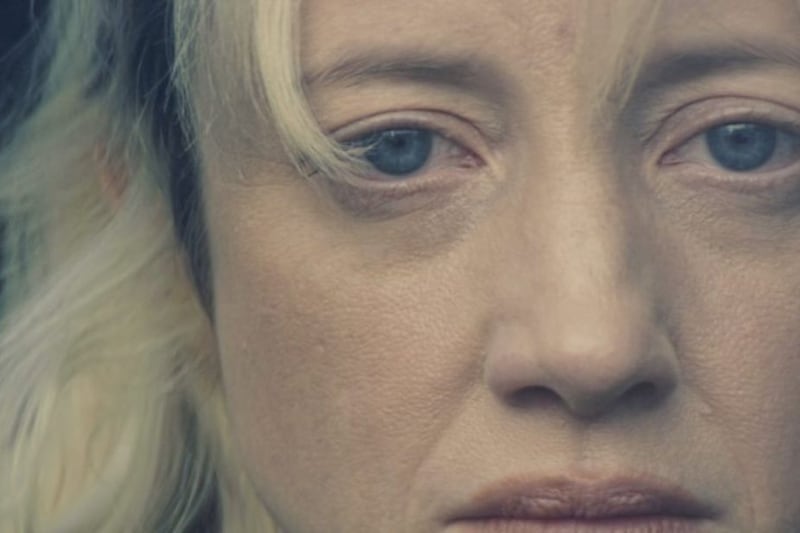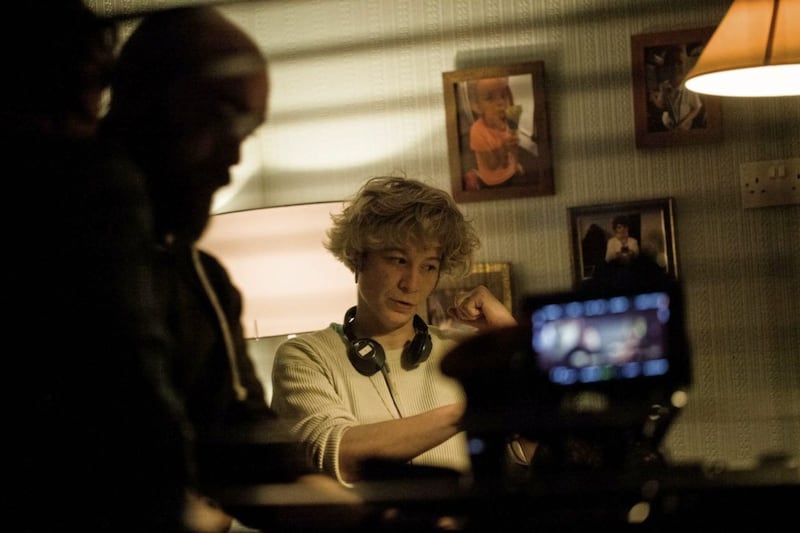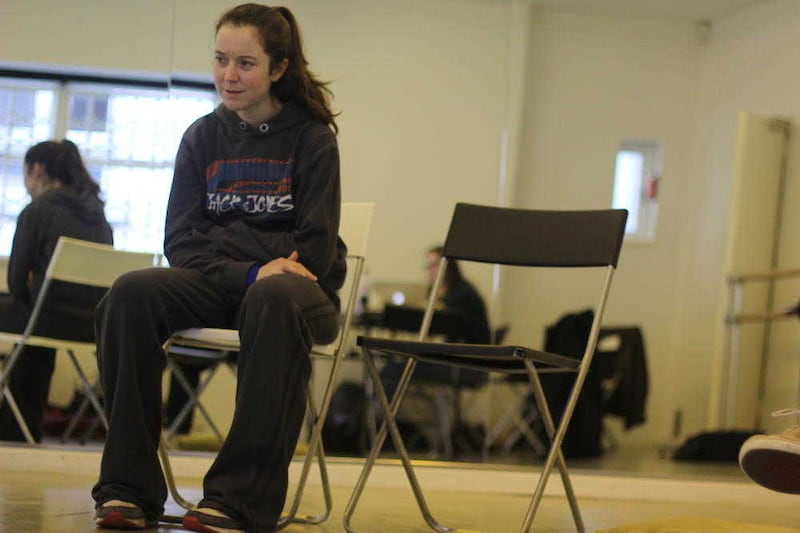THE idea behind one of the most unsettling films you'll see about the loss of a child came to film-maker and writer Stacey Gregg when she was young. Here Before, Gregg's debut feature, had a long germination.
"Yes, when I was pretty young I was interested in reincarnation and the paranormal, a '90s kid into The X-Files," she explains. "For a long time I had an idea about a family moving in next door and the child saying, 'That's where they put me in the ground...'"
Set in north Belfast and Cave Hill, which broods behind the suburban houses, the film - currently touring Northern Ireland via a Film Hub NI initiative - will enthral audiences.
When you see Laura (a magnificent Andrea Riseborough) clocking the arrival of Megan, her new 10-year-old neighbour and the same age as her daughter when she died, you know something's about to unravel. Which it does.
Gregg (39) says it's a psychological drama, although quite a dark one, if not totally Don't Look Now. The film-maker points out that there's a space in Irish culture for spirituality. "My mum is very superstitious and if a bird flies into the house, says: 'What does it mean?'"
There are references to reincarnation, and there is also the sense that Laura's world is proving too much. The notion of women in jeopardy isn't new. As Gregg puts it: "We've seen a prolific premise of violence, often sexual violence, against women and children (in film) which is not controversial."
One of the groundbreaking plays Gregg wrote, Perve, which opened at The Abbey Theatre in 2011, dealt with innocence and society's sexualisation of youth.
The style of Gregg's film is beguiling, and she uses slowed down sequences to point up details – the flowers placed clumsily at the dead girl's grave and a shot of the untidy corner of the garden – to suggest we're in sinister territory.
It's a style that she hopes "invites the audience to lean in", she says, adding that she wanted to tap into communal experience and deliberately chose a recognisable housing estate as the backdrop. "It was exciting to be making a film about Northern Ireland in Northern Ireland," she says.
Gregg's own background is relevant - "We were from east Belfast and I spent my teenage years in Dundonald" - and she observed that Riseborough, who is from Newcastle upon Tyne, was heroic in mastering the northern Irish accent.
Early cinematic influence came via Gregg's uncle who lived next door and was a video enthusiast. "He would get all sorts of 18 certificate, unsuitable horror titles from Xtra-vision, the video shop," she recalls.
"I was the only girl among the boy cousins and spent some time behind the sofa. But I enjoyed The Terminator, Predator, RoboCop." Other non-horror genre influences on the big screen include Dead Poets Society and A League of Their Own, which Gregg says she found inspiring as an account of women playing baseball.
At this stage, Stacey Gregg saw herself on the other side of the camera: "I thought I'd be an actor."
But when she went to university in England - "Cambridge, it was quite a big deal," she admits - writing claimed her. She recalls finding it difficult to finish an assignment on Greek drama.
"I was struggling with a paper on Greek tragedy and decided to look at a (Steven) Berkoff piece and Sarah Kane's Phaedra's Love," she says. The more contemporary view of early drama helped her. Then Gregg decided to pen a couple of related scenes set in Belfast. She says now that the Troubles formed a kind of backdrop: "It was the time of Robert McCartney's murder and his sisters' quest for the truth."
The writer was en route to her brilliant career. After going to London, Gregg worked as a PA for charities and theatres. "I'd done the McDonald's and launderette jobs as a teenager, but didn't have a financial safety net," she says. "I'm not sure how good a PA I was."
Eventually Gregg achieved the stability to start writing plays. But film is exciting. She refers to the fact that all drama involves "conflict and intrigue".
Gregg goes on to distinguish between the different forms around: "Theatre is different, cinema is realism and psychologically grounded but TV is definitely having a moment." She adds that the small screen can be more ambitious, with the long form it has at its disposal.
She was a director of two episodes earlier this year of HBO's big comedy horror, The Baby, about a sinister innocent latching onto a woman who isn't bothered about motherhood. "That was different again," she says. "It was big budget, there were big teams and the show itself felt audacious."
Plus, Gregg and her colleagues were totally ignoring WC Fields's famous dictum about not working with children and animals, and were taking on babies: "I was so excited to be working with babies. They were live, just themselves, and spoke to the theatre part of me."
Gregg's next project is Bukolia, a sci-fi work - "it's a play, it's metaphoric" - plus "an uplifting comedy set in the '70s" for BBC Film.
The film-maker divides her time between London and Co Down: "For work we're Peckham, here it's Bangor where I love going after hard work. My partner joins me, she's a graphic designer."
Returning to Here Before, Gregg says that she enjoys creating a space for the audience to enter the story.
"I prefer not to overdo the mood of unease yet I absolutely acknowledge a gloss of the Troubles and it reflects some of the questions in Laura's character," she says.
Cleverly, the director judges it just right and there is plenty to give you a frisson in your plush seat. Surprisingly, the script was written very quickly – "in a week, but it didn't change much".
Taking on the role of director of a feature film was, she admits with a laugh, "a huge challenge", given she had previously helmed only a short film. "But I had a defiant sense of, 'I can do this'," she says, though is quick to acknowledge the team who helped her.
Here Before ends with a decent twist - I shan't spoil it except to say it involves satisfyingly messy human relationships. There have been different audience reactions, as Gregg notes.
"I think that film thrillers are genre pieces. In a way, it doesn't help that there's the political divide," she says.
"It's a study of grief but some people may feel short changed. I don't regret the way it's all tied up at the end."
:: Here Before is on tour around Northern Ireland courtesy of Film Hub NI, with screenings to come in Portrush (The Playhouse, May 26), Newcastle (Newcastle Community Cinema, June 11) and Portstewart (Flowerfield Arts Centre, June 23). Visit filmhubni.org for tickets and information.






